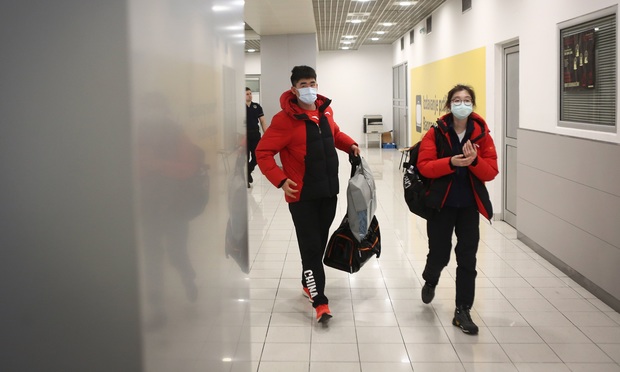- China Law News
- Foreign Direct Investment
- Projects Energy and Environment
- Retail Trade and Distribution
- Technology Media and Telecom
- Transportation
In the News: China Resumes Business; Beijing Quarantines Foreigners; and US Companies Profits Fall
March 16, 2020 | BY
Vincent ChowChina sees businesses and workers return to work as epidemic situation improves; Beijing announces quarantine for inbound travelers as worry over imported cases grows; and AmCham China reports pessimism among members over worsening bilateral relations
Most China businesses resume operations as new cases dwindle
Almost all of China's largest companies have resumed operations while the majority of the workforce is back at work, according to the country's industry regulator. On Mar. 13, Vice Minister of Industry and Information Technology Xin Guobin said at a press conference with the State Council that over 95% of large-scale enterprises and 80% of workers have resumed work outside of Hubei province, the epicenter of the coronavirus outbreak.
The figure is smaller for small and mid-size enterprises, with around 60% back in business more than a month after the Lunar New Year holiday period, the minister revealed. In recent weeks, the government has focused more of its attention to getting businesses back into normal operation again to revitalize a stuttering economy back as the number of new epidemic cases has fallen. On Mar. 10, an official from the Ministry of Ecology and Environment announced that China will give companies more time to rectify environmental issues to support their efforts to resume production.
Although China is seeing more of its companies and factories up and running again, the business outlook is nowhere near pre-outbreak levels due to the increasingly dire global situation, now officially a pandemic according to the World Health Organization. As a result, Chinese companies that have resumed operations are now facing another wave of business disruption as demand overseas looks set to plummet in the coming days and weeks. According to a Chinese customs survey released on Mar. 7, more than 80% of 2,552 Chinese companies involved in trade have resumed operations. However, export data show that sales abroad in January and February dropped 17.2% year-on-year.
More from CLP:
Employment issues: What Are Employers' Obligations Amid the Coronavirus Outbreak?
This premium content is reserved for
China Law & Practice Subscribers.
A Premium Subscription Provides:
- A database of over 3,000 essential documents including key PRC legislation translated into English
- A choice of newsletters to alert you to changes affecting your business including sector specific updates
- Premium access to the mobile optimized site for timely analysis that guides you through China's ever-changing business environment
Already a subscriber? Log In Now





